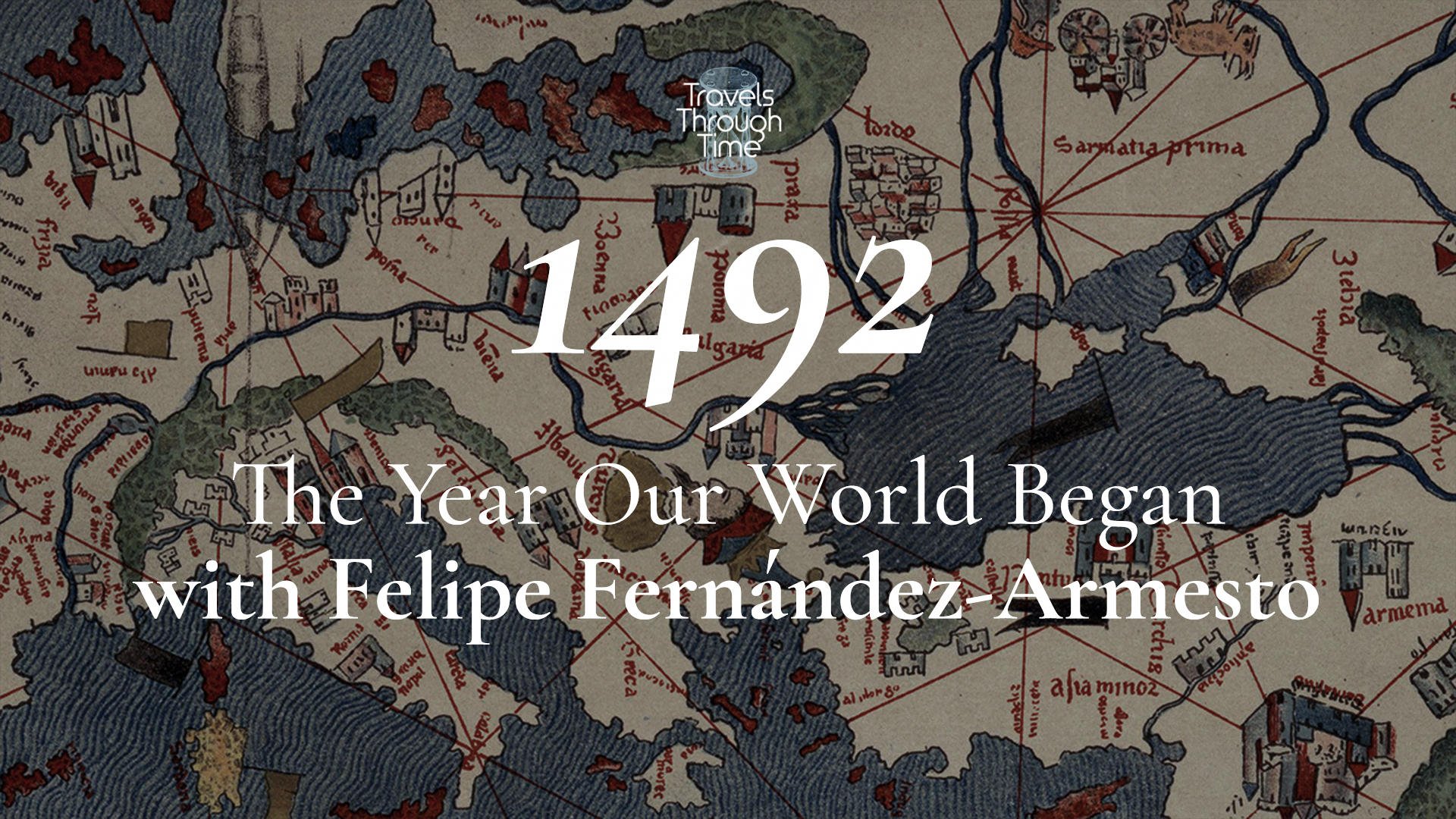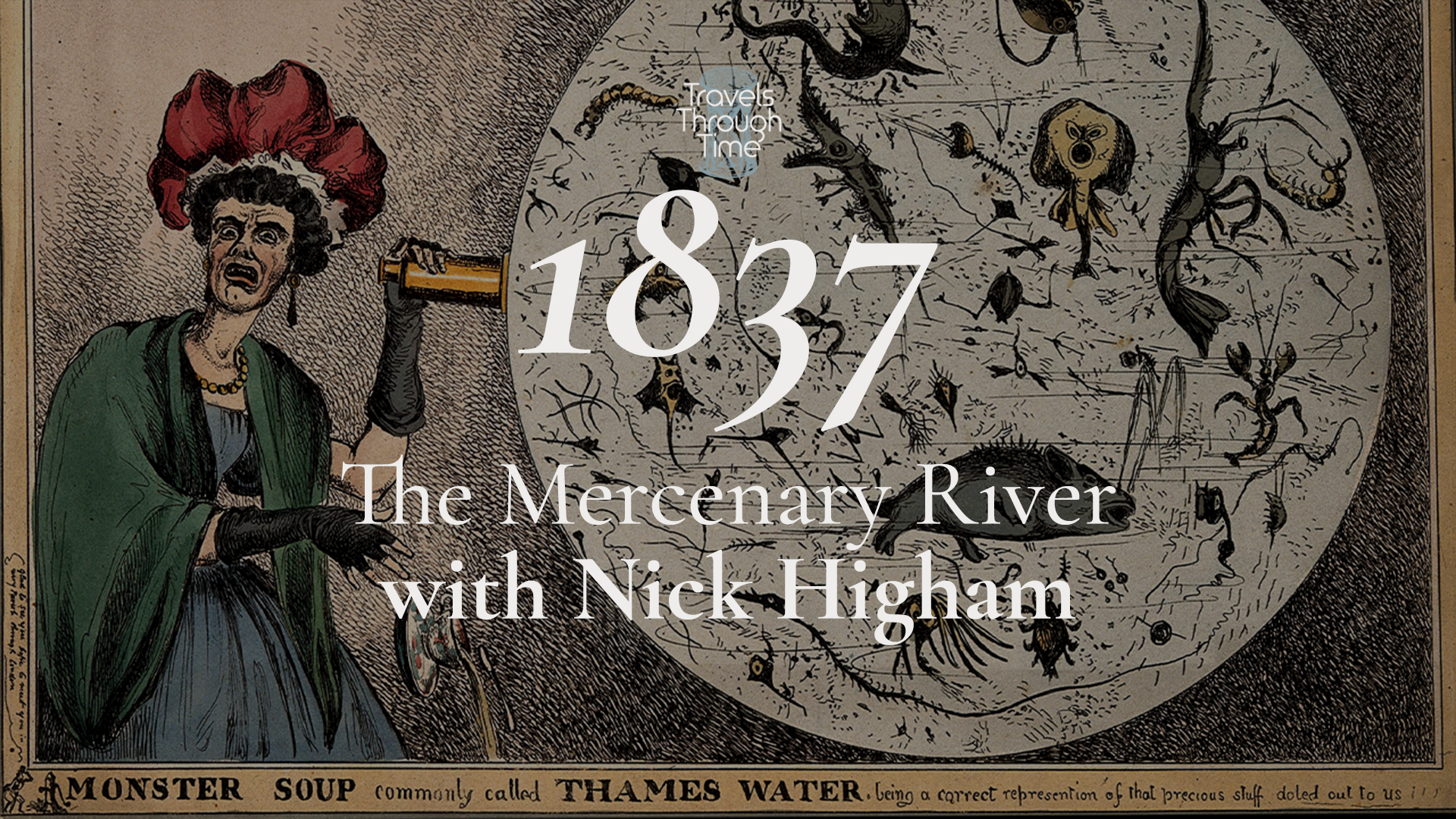At Home with Jane and William Morris: Suzanne Fagence Cooper (1862)
In this episode we meet an extraordinary couple, whose life-long partnership and dual creativity changed the face of Britain’s Arts and Crafts movement. They are Jane and William Morris.
Live from Chalke Valley History Festival: Oskar Jensen (1815)
Welcome to a special live recording of Travels Through Time, made at the Chalke Valley History Festival. In the sun of a midsummer day in southern England, Violet Moller sat down for a chat, and a song, with Oskar Jensen.
Alfred the Great and the Vikings: Michael Wood (878)
We welcome the world-renowned historian Michael Wood who reveals exactly why Alfred the Great is so well thought of. He takes us back to 878, a pivotal year in our history when, against all the odds, the Viking invaders were defeated.
The Assassination of Field Marshal Sir Henry Wilson MP: Ronan McGreevy (1922)
Exactly one hundred years ago a series of gunshots rang out in Belgravia, London. Within hours the shocking news was being transmitted around the British Empire. Field Marshall Sir Henry Wilson, one of the great heroes of the Great War, had been assassinated.
The Premonitions Bureau: Sam Knight (1967)
In 1967, the year the Beatles released Sergeant Pepper and Ariel-3, the first British made satellite, was launched into orbit, at the Fleet Street offices of the Evening Standard, a different kind of experiment began. Meet John Barker and the Premonitions Bureau.
The Discovery of Tutankhamun's Tomb: Toby Wilkinson (1922)
Toby Wilkinson takes us back a century, to explain how the greatest archeological discovery of them all happened in the Valley of the Kings.
A History of the Castle: John Goodall (1217)
This week, we are travelling through time with the acclaimed architectural historian John Goodall. His new book The Castle: A History tells the stories of these influential buildings through riveting snapshots at various moments in their history.
The Year Our World Began: Felipe Fernández-Armesto (1492)
The year 1492 famously brought Columbus’s discovery of a maritime route to America. This was, according to today’s guest Felipe Fernández-Armesto, ‘a world-changing event if ever there was one.’ But what else was happening in that fateful year? What was happening in China? In Africa?
Motion Pictures and the Rise of Modern Britain: Paul Fischer (1888)
In this episode we head to Victorian Britain, where leaps in technology were making the world seem smaller and faster than ever before. Our guide is the author and film-maker Paul Fischer whose new book, The Man Who Invented Motion Pictures, charts the incredible race to invent the first film camera and projector.
The Matter of Everything: Dr Suzie Sheehy (1932)
In this episode, we are donning our lab coats and gaining access to the secrets of particle physics. Our guest is Dr Suzie Sheehy who takes us to 1932, an astonishing year in the history of science across the world.
The Dartmoor Massacre: Nicholas Guyatt (1815)
In the spring of 1815, as all Europe fretted about the return of Napoleon Bonaparte, a terrible massacre was perpetrated by British militiamen against American inmates at Dartmoor Prison in England.
Journey to Britannia: Bronwen Riley (130 AD)
This week we are setting sail for the Roman province of Britannia to traverse the empire's north-western frontier – Hadrian's Wall. Our navigator is Bronwen Riley, a historian who traced this journey in her rigorously researched yet highly readable book, Journey to Britannia.
John Donne, Super-Infinite: Katherine Rundell (1601)
This week we head back to Renaissance England to immerse ourselves in the world of John Donne, one of Britain’s most ingenious poets. We visit playhouses, bear-fighting pits and the poet’s marital bed to better understand Donne’s life and work.
Hidden Hands: Mary Wellesley (1413)
This week Dr Mary Wellesley takes us to fifteenth-century Norwich to meet two of the most extraordinary women in medieval England: Margery Kempe and Julian of Norwich.
The Mercenary River: Nick Higham (1837)
This week Nick Higham takes us to nineteenth-century London, when the city's infrastructure was groaning under the strain of its exponential growth and the question of how to get a clean, reliable water supply was of upmost importance.
In the Shadow of St. Paul’s Cathedral: Margaret Willes (1666)
This week we revisit the Great Fire of London, one of the most dangerous and dramatic moments in the city's history through the prism of one of its most iconic buildings: St. Paul's Cathedral.
Manhattan Phoenix: Daniel Levy (1835)
There is nowhere on earth quite like New York City. In this episode the writer and journalist Daniel Levy takes us back to the early nineteenth-century and to a dramatic, catalytic moment in his home town’s development: the Great Fire of 1835.
Shadowlands: Matthew Green (1965)
In this episode, we witness the drowning of the Tryweryn Valley, a devastating event which galvanised the Welsh nationalist struggle and lives on in memories today.
The Astronomer and the Astrolabe: Seb Falk (1327)
In this episode we venture on a journey of scientific discovery and meet one of the most important figures in English medieval science: Richard of Wallingford. He was a gifted astronomer, inventor, Abbot and ultimately, victim of leprosy.
Elizabeth Stuart, Queen of Hearts: Nadine Akkerman (1620)
In Women’s History Month we take a look back at a figure who has been misrepresented by successive generations of historians. Elizabeth Stuart was the god-daughter of Queen Elizabeth I and sister of the ill-starred King Charles I of England. She was someone who played an active and fascinating part in the times in which she lived.




















